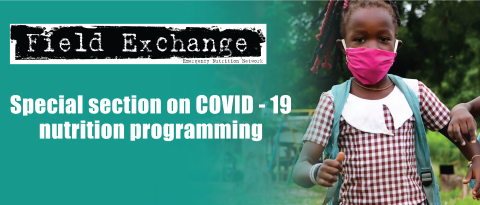COVID-19 pandemic and mitigation strategies: implications for maternal and child health and nutrition
Research Snapshot1
The adverse global impact of COVID-19 on poverty, the coverage of essential support services and access to nutritious foods is likely to lead to an increase not only in the incidence of child wasting but also maternal and child undernutrition more broadly. A number of sectors that are critical for the reduction of maternal and child undernutrition are at risk of collapse or reduced efficiency. Specifically, disruption to food systems, incomes and services that provide healthcare, education, social protection and sanitation need to be mitigated during and in the aftermath of COVID-19 to reduce the burden of undernutrition.
The authors build on their previous ‘Global Health’s Stunting Reduction Exemplars’ project to suggest priority actions within low- and middle- income countries. For food systems, these include interventions to strengthen the food supply chain through investment and policy reforms and to reduce food insecurity by assisting those at immediate risk of food shortages. For incomes, interventions include targeted social safety net programmes, payment deferrals or tax breaks as well as suitable cash support programmes for the most vulnerable such as the national conditional cash transfer programme in Peru.
Community health workers (CHWs) and community groups, targeting the most marginalised households, can be utilised to address shortfalls in current healthcare, education, social protection and sanitation services. Ethiopia's health extension workers and Nepal's female community health volunteers showcase successful models of mobilising CHWs. CHWs and other community groups can also be an important source of health and nutrition information while the education system is not fully functioning. Additionally, several community-level COVID-19 response measures such as contact tracing and self-isolation could also be exploited for nutrition protection. While government-led improvements in sanitation infrastructures might be on hold as a result of the pandemic, community-led sanitation programmes can ensure healthy household environments and reduce undernutrition, for example, the Community Led Total Sanitation programmes in Nepal, Ethiopia and Senegal.
Successful interventions to alleviate the effects of COVID-19 on maternal and child undernutrition will require governments, donors and development partners to restrategise and reprioritise investments for the COVID-19 era and will necessitate data-driven decision making, political will and international unity.
1Akseer, N, Kandru, G, Keats, E C and Bhutta, Z A (2020) COVID-19 pandemic and mitigation strategies: implications for maternal and child health and nutrition. The American journal of clinical nutrition, 112(2), pp.251-256.


